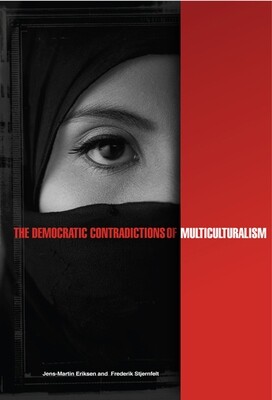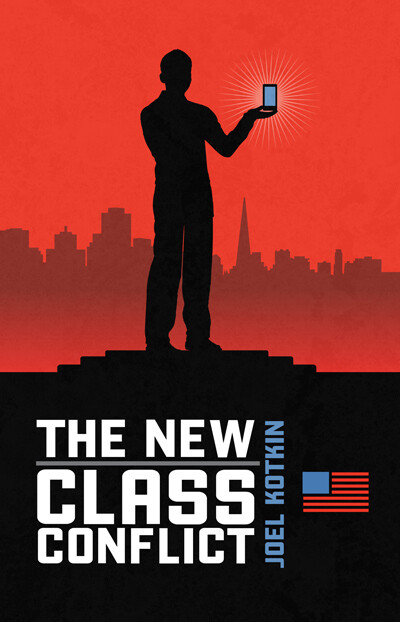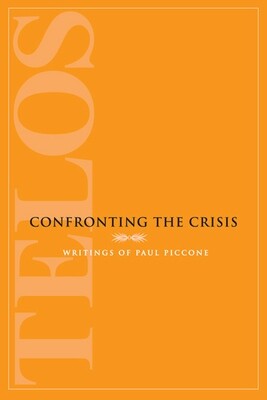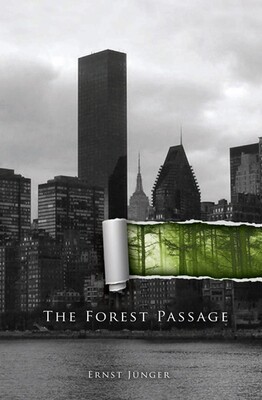The New Class Conflict (hardcover)
The New Class Conflict
by Joel Kotkin
With a Foreword by Fred Siegel
Also available in eBook format at Amazon.com (Kindle) and Barnes & Noble (Nook).
In ways not seen since the Gilded Age of the late nineteenth century, America is becoming a nation of increasingly sharply divided classes. Joel Kotkin's The New Class Conflict breaks down these new divisions for the first time, focusing on the ascendency of two classes: the tech Oligarchy, based in Silicon Valley; and the Clerisy, which includes much of the nation's policy, media, and academic elites.
The New Class Conflict is written largely from the point of view of those who are, to date, the losers in this class conflict: the middle class. This group, which Kotkin calls the yeomanry, has been the traditional bulwark of American society, politics, and economy. Yet under pressure from the ascendant Oligarchs and ever more powerful Clerisy, their prospects have diminished the American dream of class mobility that has animated its history and sustained its global appeal.
This book is both a call to arms and a unique piece of analysis about the possible evolution of our society into an increasingly quasi-feudal order. Looking beyond the conventional views of both left and right, conservative and liberal, Kotkin provides a tough but evenhanded analysis of our evolving class system, and suggests some approaches that might restore the middle class to its proper role as the dominant group in the American future.
Praise for The New Class Conflict
"Big government, which has become gargantuan in response to progressives' promptings, serves the strong. It is responsive to factions sufficiently sophisticated and moneyed to understand and manipulate its complexity. . . . Yet progressives, refusing to see this defect—big government captured by big interests—as systemic, want to make government an ever more muscular engine of regulation and redistribution. Were progressives serious about what used to preoccupy America's left—entrenched elites, crony capitalism and other impediments to upward mobility—they would study The New Class Conflict, by Joel Kotkin, a lifelong Democrat."
—George F. Will, Washington Post
"Any serious attempt to understand the US's current impasse by moving outside the conventional framework should be welcome. The stale pairings of liberal and conservative, right and left, no longer cut it. Joel Kotkin, an American academic and author, has come up with the unlikely proposal of understanding the country's predicament in terms of class conflict. But his conception is a world away from the old socialist notion of a combative proletariat battling against an intransigent ruling class. Instead, his is an innovative attempt to rethink the main contours of US society."
—Daniel Ben-Ami, Financial Times
"We've heard a lot of election-year class warfare talk, from makers vs. takers to the 1% vs. the 99%. But Joel Kotkin's important new book, The New Class Conflict, suggests that America's real class problems are deeper, and more damaging, than election rhetoric. Traditionally, America has been thought of as a place of great mobility—one where anyone can conceivably grow up to be president, regardless of background. This has never been entirely true, of course. Most of our presidents have come from reasonably well-off backgrounds, and even Barack Obama, a barrier-breaker in some ways, came from an affluent background and enjoyed an expensive private-school upbringing. But the problem Kotkin describes goes beyond shots at the White House."
—Glenn Harlan Reynolds, USA Today
"Joel Kotkin's The New Class Conflict paints a dire picture of the undeclared war on the middle class. What he calls the Oligarchy (Silicon Valley and Hollywood) and the Clerisy (the media, bureaucrats, universities and nonprofits) enrich themselves and gratify their own strange obsessions at the expense of the middle class. . . . When Samuel Coleridge first used the term in 1830, he said the clerisy were the bearers of the highest ideals of society. Their mission was to transmit them to the less enlightened orders. What if the rest of us don’t necessarily agree with all those ideals? What if we don’t want to be enlightened? What if what we really care about is our jobs and our paychecks? Reply the Clerisy and the Oligarchy: Shut up and listen to your betters."
—Kyle Smith, New York Post
"Kotkin appreciates how markets can contribute to social betterment, and he understands the suspicion many contemporary people feel about elites' attempts to plan their lives. While he is obviously not a market radical, he rightly focuses on genuine challenges that ought to be deeply troubling to observers across the political spectrum. He helpfully urges libertarians to think long and hard about the future of the family as a crucial social institution. And his emphasis on the importance of growth, in tandem with his rejection of corporate and academic paternalism, should make his approach particularly appealing to defenders of freedom and prosperity. The result is a provocative and useful contribution to the literature on class."
—Gary Chartier, Reason
"The New Class Conflict is essential to understanding the 'new class order' that is undermining the republican ideals of this nation. . . . Kotkin is to be commended for seeing past the daily bric-à-brac of American politics to perceive the newly emerging class divisions. More work must be done on what to do about these issues, but this book is an enormously important first step."
—Jay Cost, Washington Free Beacon
“Joel Kotkin’s The New Class Conflict takes a battering ram of fact and sharp polemic to the tired orthodoxies of the American Left and Right on class and income inequality. Conservatives complain that liberals punish them for being rich and productive and prevent them from creating jobs, all while the rich get richer by means that have little to do with productivity or job creation. The liberals say that income inequality is America’s number one problem, but during Barack Obama’s administration, his policies have widened the gap all the more. Kotkin does more than damn the mainstream views. He annihilates political fictions with corrective fact. Those who disagree will have to wrestle with Kotkin’s empiricism.”
—Ted C. Fishman, bestselling author of China, Inc. and Shock of Gray
“There’s class warfare politics in America today, but not between Marx’s bourgeoisie and proletariat. On one side are a hyperaffluent financial and high-tech Oligarchy and a preachy media, university, and government Clerisy, using their advantages to promote liberal social values and ‘green’ policies. On the other side are the middle-class Yeomanry and an urban underclass, both of which need the mass economic growth and upward mobility that the Oligarchy and Clerisy ignore. Joel Kotkin’s The New Class Conflict tells how this conflict is proceeding—and how it might be turned around.”
—Michael Barone, Washington Examiner and the American Enterprise Institute
“For those bemoaning the end of the American Dream, The New Class Conflict offers hope, coupled with an unconventional and insightful recipe for its restoration. Joel Kotkin calls upon all Americans, and Millennials in particular, to have the courage to overcome the economic, political, and social factors that are keeping America’s middle and working classes from enjoying the benefits of our resilient economy. In a book that will please neither Left nor Right, Kotkin uses his caustic and entertaining perspective to identify what needs to be done to preserve upward mobility, ‘the very idea of America.’”
—Morley Winograd, co-author of three books on the Millennial generation
“In his clear and provocative manner, Joel Kotkin lays down persuasive evidence of a heightening economic and cultural polarization in American society—from the rise of a New Oligarchy and the vanity of ‘Gentry Liberalism,’ to the proletarianization of the middle class and the persistence of poverty—which bodes ill for most citizens and even worse for their children. Of particular interest is his section on the geography of inequality, in which he evidences, contrary to popular belief, that Americans are still suburbanizing more than they are urbanizing, despite that the new Clerisy has routed so much attention and resources to ‘cool’ inner-city neighborhoods and the so-called ‘creative class’ to which they themselves belong. The New Class Conflict is riveting, unsettling, nonpartisan, even-handed—and required reading.”
—Richard Campanella, geographer and author, Tulane University
“Like a cold glass of water thrown into the face of intellectual orthodoxy, Joel Kotkin’s The New Class Conflict is a bracing and ultimately refreshing analysis of America’s growing middle-class crisis. In Kotkin’s signature trenchant style, rooted in a convincing mix of empirical analysis and personal observation, he spares neither the left nor the right, skewering hypocrisy, pretension, and intellectual laziness on both sides of the aisle. His hypothesis—that the decline of the middle class represents the great crisis of our generation—should become a guiding theme in the thinking of all elected, business, and civic leaders in America today.”
—Michael Hecht, President & CEO, Greater New Orleans, Inc.
"Joel Kotkin argues that we are experiencing more than a geographical divide. For the first time since its founding, he suggests, America is experiencing a potentially devastating class conflict--the kind of division between the elites and the rest of America that could all but break the country's middle-class backbone."
--Naomi Schaefer Riley, First Things
About the Author
Joel Kotkin is the Roger Hobbs Distinguished Fellow in Urban Studies at Chapman University in Orange, California, and Executive Editor of the widely read website New Geography. An internationally recognized authority on global, economic, political, and social trends, Kotkin is the author, most recently, of The Next Hundred Million: America in 2050.
ISBN 978-0-914386-28-5 (hardcover)
230 pages
Pub. Date: September 1, 2014







